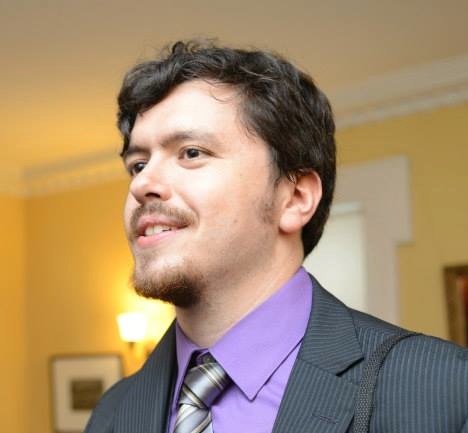language and (sharply bounded) memory
 We are developing theories of the mental architecture that supports language
processing—especially the short-term memory system that allows us to
keep in mind and revise the partial interpretation (or generation) of
earlier parts of a sentence while relating it to the rest. Our recent work
advances and empirically defends (through detailed cross-linguistic studies
of reading, including eye-tracking) a number of specific hypotheses about the
principles that govern how this memory system works.
We are developing theories of the mental architecture that supports language
processing—especially the short-term memory system that allows us to
keep in mind and revise the partial interpretation (or generation) of
earlier parts of a sentence while relating it to the rest. Our recent work
advances and empirically defends (through detailed cross-linguistic studies
of reading, including eye-tracking) a number of specific hypotheses about the
principles that govern how this memory system works.
A key feature of this work is that the proposed principles—such as similarity-based interference and a sharply limited focus—are general ones that have broad explanatory power in domains outside of sentence processing. Our theories of sentence processing are intended to explain how we are functionally able to comprehend and produce complex language structures despite these constraints, and to understand precisely how the constraints leave their mark on linguistic behavior.
The work touches on a number of core issues in sentence processing, including the complexity of embedded structures, processing of verb-final structures, and reanalysis.
For more related work, visit Shravan Vasishth's website at Potsdam.
 key overview publications
key overview publications
Attend to the copyright notice.
Lewis, R. L., Shvartsman, M., and Singh, S. (2013). The adaptive nature of eye-movements in linguistic tasks: How payoff and architecture shape speed-accuracy tradeoffs. Topics in Cognitive Science, 5(3):583-610. [ PDF ]
Bratman, J., Shvartsman, M., Lewis, R. L., and Singh, S. (2010). A new approach to exploring language emergence as boundedly optimal control in the face of environmental and cognitive constraints. In Salvucci, D. and Gunzelmann, G., editors, Proceedings of the 10th International Conference on Cognitive Modeling. To appear. [ PDF ]
Jonides, J., Lewis, R. L., Nee, D. E., Lustig, C. A., Berman, M. G., and Moore, K. S. (2008). The mind and brain of short-term memory. Annual Review of Psychology, 59:15.1-15.32. [ PDF ]
Lewis, R. L., Vasishth, S., and Van Dyke, J. A. (2006). Computational principles of working memory in sentence comprehension. Trends in Cognitive Sciences, 10:44-54. [ PDF ]
Vasishth, S. and Lewis, R. L. (2006). Argument-head distance and processing complexity: Explaining both locality and anti-locality effects. Language, 82:767-794. [ PDF ]
Lewis, R. L. and Vasishth, S. (2005). An activation-based model of sentence processing as skilled memory retrieval. Cognitive Science, 29:375-419. [ PDF ]
Lewis, R. L. (2000). Specifying architectures for language processing: Process, control, and memory in parsing and interpretation. In Crocker, M. W., Pickering, M., and Clifton, Jr., C., editors, Architectures and Mechanisms for Language Processing. Cambridge University Press, Cambridge. [ PDF ]
Lewis, R. L. (1993). An Architecturally-based theory of Human Sentence Comprehension. PhD thesis, Carnegie Mellon University. [ PDF ]
These references were generated by bibtex2html 1.93.
other relevant publications
Patil, U., Vasishth, S., and Lewis, R. L. (2016). Retrieval interference in syntactic processing: The case of reflexive binding in english. Frontiers in Psychology, 7. [ PDF ]
Howes, A., Duggan, G. B., Kalidindi, K., Tseng, Y.-C., and Lewis, R. L. (2015). Predicting short-term remembering as boundedly optimal strategy choice. Cognitive Science, pages 1-32. [ PDF ]
Shvartsman, M., Lewis, R. L., and Singh, S. (2014). Computationally rational saccadic control: An explanation of spillover effects based on sampling from noisy perception and memory. In Demberg, V. and O'Donnell, T. J., editors, Proceedings of the 5th Workshop on Cognitive Modeling and Computational Linguistics (CMCL 2014), Baltimore, MD. Association for Computational Linguistics. Best Student Paper Award. [ PDF ]
Atkins, A. S., Berman, M. G., Reuter-Lorenz, P., Lewis, R. L., and Jonides, J. (2011). Resolving semantic and proactive interference in memory over the short-term. Memory & Cognition, 39:806-817. [ PDF ]
Bartek, B., Lewis, R. L., Vasishth, S., and Smith, M. R. (2011). In search of on-line locality effects in sentence comprehension. Journal of Experimental Psychology: Learning, Memory, and Cognition, 37(5):1178-1198. [ PDF ]
Lewis, R. L. (2010a). Efficiency, economy, optimality, simplicity, minimality, search, mapping, function, state: An attempt at clarifying definitions. Unpublished manuscript. [ PDF ]
Lewis, R. L. (2010b). The strong minimalist thesis and bounded optimality. Unpublished manuscript. [ PDF ]
Obata, M., Lewis, R. L., Epstein, S., Bartek, B., and Boland, J. (2010). Featural analysis and short-term memory retrieval in on-line parsing: Evidence for syntactic, but not phonological, similarity-based interference. In Proceedings of NELS 41: Conference of the North East Linguistics Society, Philadelphia. [ PDF ]
Vasishth, S., Suckow, K., Lewis, R. L., and Kern, S. (2010). Short-term forgetting in sentence comprehension: Crosslinguistic evidence from verb-final structures. Language and Cognitive Processes. In press. [ PDF ]
Berman, M. G., Jonides, J., and Lewis, R. L. (2009). In search of decay in verbal short-term memory. Journal of Experimental Psychology: Learning, Memory, & Cognition, 35(2):317-333. [ PDF ]
Lustig, C. A., Lewis, R. L., Berman, M. G., Nee, D. E., Moore, K. S., and Jonides, J. (2009). Psychological and neural mechanisms of short-term memory. In Berntson, G. and Cacioppo, J. T., editors, Handbook of Neuroscience for the Behavioral Sciences. John Wiley, Hoboken, NJ. [ PDF ]
Vasishth, S., Bruessow, S., Lewis, R. L., and Drenhaus, H. (2008). Processing polarity: How the ungrammatical intrudes on the grammatical. Cognitive Science, 32(4):685-712. [ PDF ]
Nakayama, M., Vasishth, S., and Lewis, R. L. (2006). Difficulty of certain sentence constructions in comprehension. In Handbook of East Asian Psycholinguistics, volume 2. Cambridge University Press, Cambridge, England. [ PDF ]
Vasishth, S. and Lewis, R. L. (2006). Symbolic models of human sentence processing. In Brown, K., editor, Encyclopedia of Language and Linguistics, 2nd edition, volume 5, pages 410-419. Elsevier. [ PDF ]
Nakayama, M., Lee, S.-H., and Lewis, R. L. (2005). Difficulty of processing Japanese and Korean center-embedding constructions. In Minami, M., Kobayashi, H., Nakayama, M., and Sirai, H., editors, Studies in Language Sciences, volume 4, pages 99-118. Kurosio Publishers, Tokyo. [ PDF ]
Vasishth, S., Drenhaus, H., Saddy, D., and Lewis, R. L. (2005). Processing negative polarity. In Proceedings of the CUNY Sentence Processing Conference, University of Arizona. [ PDF ]
Vannest, J., Polk, T. A., and Lewis, R. L. (2005). Dual-route processing of complex words: new fMRI evidence from derivational suffixation. Cognitive, Affective, and Behavioral Neuroscience, 5:67-76. [ PDF ]
Vasishth, S. and Lewis, R. L. (2004). Modeling sentence processing in act-r. In Proceedings of the Association for Computational Linguistics, Barcelona. [ PDF ]
Lewis, R. L. (2003). Computational psycholinguistics. In Encyclopedia of Cognitive Science. Macmillon (Nature Publishing Group), London. [ PDF ]
Van Dyke, J. A. and Lewis, R. L. (2003). Distinguishing effects of structure and decay on attachment and repair: A cue-based parsing account of recovery from misanalyzed ambiguities. Journal of Memory and Language, 49:285-316. [ PDF ]
Lewis, R. L. and Nakayama, M. (2002). Syntactic and positional similarity effects in the processing of japanese embeddings. In Nakayama, M., editor, Sentence Processing in East Asian Languages. CSLI Publications, Stanford, CA. [ PDF ]
Lewis, R. L. (2001). Falsifying serial and parallel parsing models: Empirical conundrums and an overlooked paradigm. Journal of Psycholinguistic Research, 29(2):241-248. [ PDF ]
Nakayama, M. and Lewis, R. L. (2000). Similarity interference and scrambling in Japanese. Korean Journal of Cognitive Science, 12:39-53. [ PDF ]
Lewis, R. L. (1999). Accounting for the fine structure of syntactic working memory: Similarity-based interference as a unifying principle. Behavioral and Brain Sciences, 22:105-106. [ PDF ]
Young, R. and Lewis, R. (1999). The Soar cognitive architecture and human working memory. In Miyake, A. and Shah, P., editors, Models of Working Memory: Mechanisms of Active Maintenance and Executive Control. Cambridge University Press, New York. [ PDF ]
Lehman, J. F., Newell, A., and Lewis, R. L. (1998). Architectural influences on language comprehension. In Pylyshyn, Z. W., editor, Constraining Cognitive Theorie: Issues and Options. Ablex Press, Norwood, NJ.
Lewis, R. L. (1998). Leaping off the garden path: Reanalysis and limited repair parsing. In Fodor, J. and Ferreira, F., editors, Reanalysis in Sentence Processing, pages 247-285. Kluwer Academic, Boston. [ PDF ]
Lewis, R. L. (1996). Interference in short-term memory: The magical number two (or three) in sentence processing. Journal of Psycholinguistic Research, 25(1):93-115. [ PDF ]
Lewis, R. L. (1993). An architecturally-based theory of sentence comprehension. In Proceedings of the Fifteenth Annual Conference of the Cognitive Science Society, pages 108-113. [ PDF ]
Lewis, R. L. (1992). Recent developments in the NL-Soar garden path theory. Technical Report CMU-CS-92-14, School of Computer Science, Carnegie Mellon University. [ PDF ]
Lehman, J. F., Lewis, R. L., and Newell, A. (1991). Integrating knowledge sources in language comprehension. In Proceedings of the Thirteenth Annual Conference of the Cognitive Science Society, pages 46-66. Also in P. S. Rosenbloom, J. E. Laird, and A. Newell, eds., The Soar Papers: Research on Integrated Intelligence, MIT Press, Cambridge, MA, 1993. [ PDF ]
Lewis, R. L., Newell, A., and Polk, T. A. (1989). Toward a Soar theory of taking instructions for immediate reasoning tasks. In Proceedings of the Eleventh Annual Conference of the Cognitive Science Society, pages 514-521. Also in P. S. Rosenbloom, J. E. Laird, and A. Newell, eds., The Soar Papers: Research on Integrated Intelligence, MIT Press, Cambridge, MA, 1993. [ PDF ]
These references were generated by bibtex2html 1.93.


